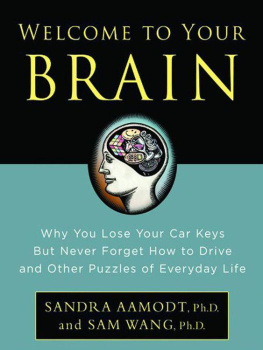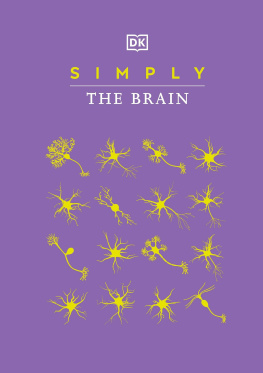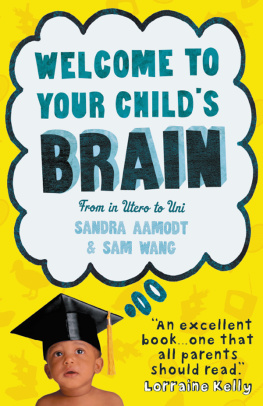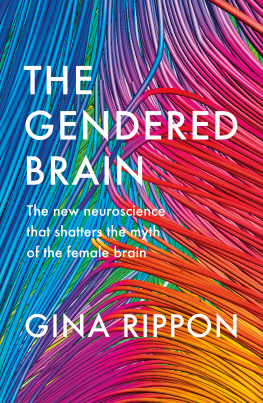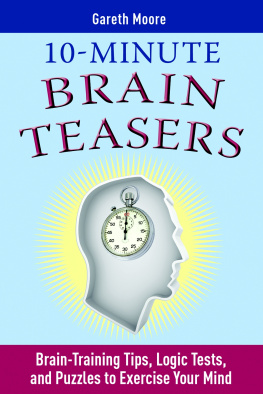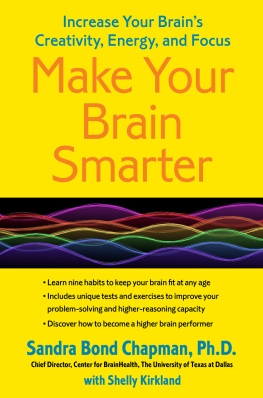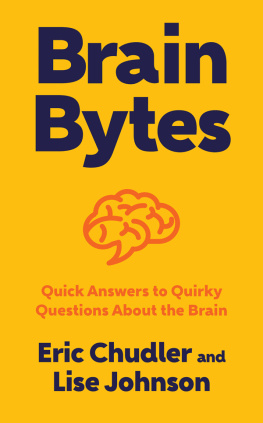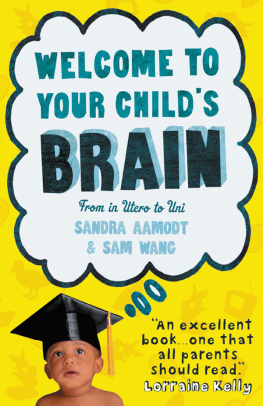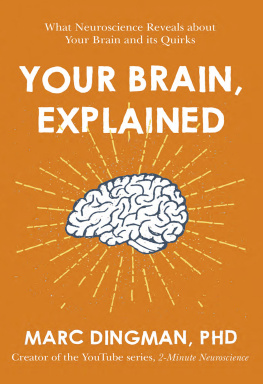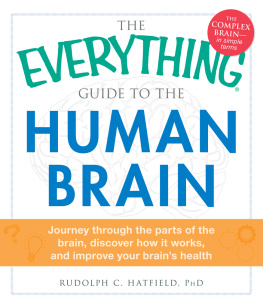Welcome to Your Brain
Why You Lose Your Car Keys but Never Forget How to Drive and Other Puzzles of Everyday Life
Sandra Aamodt, ph.D. and Sam Wang, ph.D.
Bloomsbury USA
www.bloomsburyusa.com
From Sandra, to Ken and Aquila
From Sam, to Dad, Becca, and Vita
Contents
In our careers so far, we have written over half a million words about the brain, but that experience only partially prepared us for writing this book. We have wondered why acknowledgments run so long. Now we know.
When Jack Horne learned that both of us were planning to write the same book, he suggested we combine our efforts. Sandy Blakeslee and Jeff Hawkins recommended their agency, Levine Greenberg, to us, and vice versa. Our agent, Jim Levine, and his assistant, Lindsay Edgecombe, helped us shape the books tone and content. All authors should have such expert guides for their first book. Beth Fisher connected us with publishers around the world. At Bloomsbury USA we have been lucky to work with our editor, Gillian Blake, who has been enthusiastic from the beginning and has provided an experienced hand. She, Ben Adams, and the Bloomsbury crew have improved our words and thoughts and kept us moving forward. Thanks are also due to Lisa Haney and Patrick Lane for beautiful illustrations and to Ken Catania, Pete Thompson, Ted Adelson, and Michael MacAskill for permission to use technical images.
We wrote a substantial part of the book at the Villa Serbelloni on the shores of Lake Como in Bellagio, Italy, an experience made possible by the Rockefeller Foundation and words of support from Jane Flint, Bob Horvitz, Charles Jennings, Olga Pellicer, Robert Sapolsky, and Shirley Tilghman. Pilar Palacia, Elena Ongania, and the rest of the Villa Serbelloni staff created an elegant but relaxed atmosphere for thinking, talking, and writing. Our fellow residents provided a great forum and we thank them all: Anne Waldman, Ed Bowes, Seemin Qayum, Sinclair Thomson, Raka Ray, Ashok Bardhan, Richard Cooper, Joan Kennelly, Jane Burbank, Fred Cooper, Russell Gordon, Jennifer Pierce, Dedre Gentner, Ken Forbus, David and Kathy Ringrose, Len and Gerry Pearlin, Bishakha Datta, Gautam Ojha, Sushil Sharma, Helen Roberts, Rodney Barker, Cyrus Cassells, Andre Durieux-Smith, and Roger Smith.
Friends, colleagues, and students helped and encouraged us tremendously and were the source of invaluable suggestions, discussions, and corrections. We are especially grateful to Ralph Adolphs, Daphne Bavelier, Alim-Louis Benabid, Karen Bennett, Michael Berry, Ken Britten, Carlos Brody, Tom Carmichael, Gene Civillico, Mike DeWeese, David Eagleman, Neir Eshel, Michale Fee, Asif Ghazanfar, Mark Goldberg, Astrid Golomb, Liz Gould, David Grodberg, Patrick Hof, Hans Hofmann, Petr Janata, Danny Kahneman, Yevgenia Kozorovitskiy, Ivan Kreilkamp, Eric London, Zach Mainen, Eve Marder, David Matthews, Becca Moss, Eric Nestler, Elissa Newport, Bill Newsome, Bob Newsome, Yael Niv, Liz Phelps, Robert Provine, Kerry Ressler, Rebecca Saxe, Clarence Schutt, Steven Schultz, Mike Schwartz, Mike Shadlen, Debra Speert, David Stern, Chess Stetson, Russ Swerdlow, Ed Tenner, Leslie Vosshall, Larry Young, and Gayle Wittenberg. Sam thanks his entire laboratory for accommodating his preoccupation, especially Rebecca Khaitman for excellent assistance. The Princeton University library was an essential resource. Finally, we thank Ivan Kaminow for telling us about the cell phone trick. Any remaining problems with the science, of course, are our responsibility and not theirs.
Our spouses went far beyond the call of duty in supporting us and this project, keeping us as sane as possible. Sandra thanks Ken Britten for his tolerant amusement at the prospect of entertaining himself for yet another weekend while she worked on the book and for his enthusiastic contributions to many shared adventures. She also thanks her parents, Roger and Jan Aamodt, for teaching her that girls too can take risks in pursuit of their dreams. Sam thanks Becca Moss for her partnership, her aplomb in the face of yet another crazy idea that got out of hand, and for providing a light when things got dark. Finally, Sam thanks his parents, Chia-lin and Mary Wang, for planting the seeds of a lifelong love of science and learning.
How Well Do You Know Your Brain?
Before you start reading this book, find out what you already know about your brain.
1) When are your last brain cells born?
(a) Before birth
(b) At age six
(c) Between the ages of eighteen and twenty-three
(d) In old age
2) Men and women have inborn differences in
(a) spatial reasoning
(b) strategies for navigation
(c) ability to leave the toilet seat down
(d) Both a and b
(e) Both b and c
3) Which of the following is not likely to improve brain function in old age?
(a) Eating fish with omega-3 fatty acids
(b) Getting regular exercise
(c) Drinking one or two glasses of red wine per day
(d) Drinking a whole bottle of red wine per day
4) Which of the following strategies is the best one for overcoming jet lag?
(a) Taking melatonin the night after you arrive at your destination
(b) Avoiding daylight for several days
(c) Getting sunlight in the afternoon at your destination
(d) Sleeping with the lights on
5) Your brain uses about as much energy as
(a) a refrigerator light
(b) a laptop computer
(c) an idling car
(d) a car moving down a freeway
6) Your friend is trying to tickle your belly. You can reduce the tickling sensation by
(a) putting your hand on his to follow the movement
(b) biting your knuckles
(c) tickling him back
(d) drinking a glass of water
7) Which of the following activities is likely to improve performance in school?
(a) Listening to classical music while you sleep
(b) Listening to classical music while you study
(c) Learning to play a musical instrument as a child
(d) Taking breaks from studying to play video games
(e) Both c and d
8) Which of the following things is a blow to the head least likely to cause?
(a) Loss of consciousness
(b) Memory loss
(c) Restoration of memory after suffering amnesia
(d) Personality change
9) Which of the following activities before a test might help you to perform better? (You may choose more than one.)
(a) Having a drink
(b) Having a cigarette
(c) Eating a candy bar
(d) Telling yourself with great conviction that you are good at this kind of test
10) You are in a noisy room, attempting to talk to your friend on your cell phone. To have a clearer conversation, you should
(a) talk more loudly
(b) cover one ear and listen through the other
(c) cover your ear when you talk
(d) cover the mouthpiece when you listen
11) Which of the following is an effective way to reduce anxiety?
(a) Antidepressant drugs
(b) Exercise
(c) Behavioral therapy
(d) All of the above
12) Which of the following is the hardest thing your brain does?
(a) Doing long division
(b) Looking at a photograph
(c) Playing chess
(d) Sleeping
13) Blind people are better than sighted people at which of the following?
(a) Understanding words
(b) Hearing sounds
(c) Remembering stories
(d) Training dogs
14) Your mother was improving your brain capacity when she told you which of the following things?
(a) Turn that music down
(b) Go out and play
(c) Practice your instrument
(d) All of the above
15) Memory starts to get worse in which decade of life?
(a) Thirties
(b) Forties
(c) Fifties
(d) Sixties
16) Which activities kill brain cells?
(a) Drinking three bottles of beer in an evening
Next page
